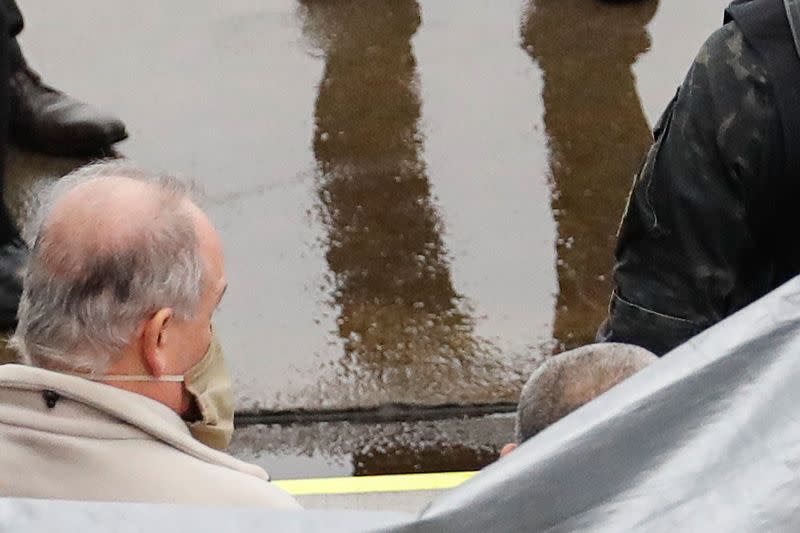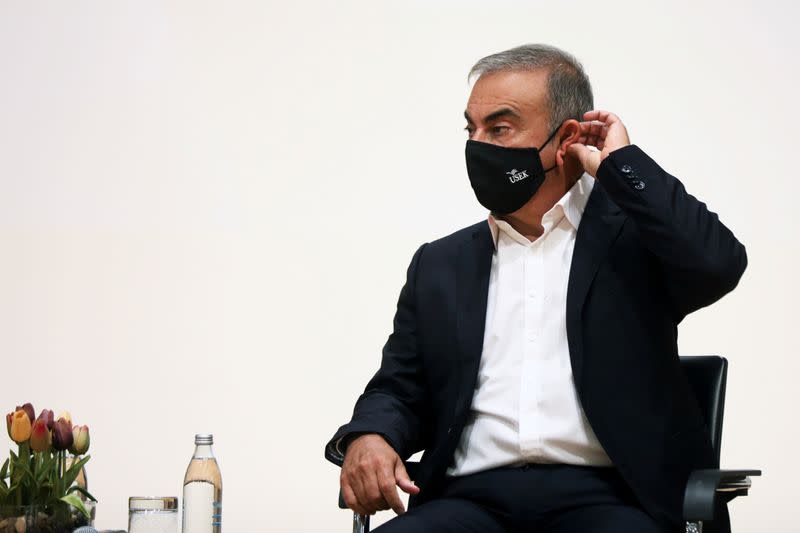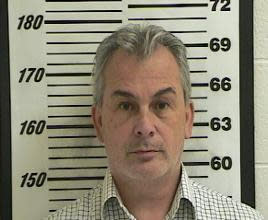Two U.S. men charged with aiding Ghosn's escape land in Japan
- Oops!Something went wrong.Please try again later.
By Eimi Yamamitsu and Nate Raymond
TOKYO (Reuters) - An American father and son accused of helping former Nissan Motor Co Ltd Chairman Carlos Ghosn flee Japan arrived in Tokyo on Tuesday to face questioning from prosecutors and the prospect of charges that could carry a three-year prison term.
The plane carrying U.S. Army Special Forces veteran Michael Taylor and his son Peter, who were extradited by U.S. authorities on Monday, landed at Tokyo's Narita airport, and the two men were escorted on to waiting police buses, according to a Reuters witness.
The Taylors will not be indicted immediately, but will likely face charges after an investigation is concluded.
The two were arrested on Tuesday on suspicion of helping Ghosn flee Japan on a private jet hidden in luggage, in contravention of his bail conditions, the Tokyo District Public Prosecutors Office said in a statement.
Under Japanese law, suspects can be held for up to 20 days before being indicted or released, and are not allowed to have their lawyers present during questioning by prosecutors. Once charged, defendants are often refused bail by courts.
"We'll conduct our investigation first so it is too early yet to say when any trial would start," Tokyo Deputy Chief Prosecutor Hiroshi Yamamoto said at a press conference Tuesday.
The two men will be detained at the Tokyo Detention House, the city's main jail where Ghosn was held after his arrest, he added.
The Taylors are alleged to have helped Ghosn flee Japan on Dec. 29, 2019, hidden in a box and on a private jet before reaching his childhood home, Lebanon, which has no extradition treaty with Japan.
Their lawyers waged a months-long battle to avoid them being sent to Japan to face charges they helped Ghosn escape, arguing they could not be prosecuted for helping someone "bail jump".
They also claimed that, if extradited, they faced the prospect of relentless interrogations and torture.
The U.S. State Department in a November court filing rejected the torture claim as unlikely, and the U.S. Supreme Court last month cleared the way for their extradition. Japanese authorities did not comment on the allegation.
The campaign by the Taylors, who have been in U.S. custody since their arrest in May, to press their case against extradition was waged in the courts, the media, State Department and White House.
"This is a sad day for the family, and for all who believe that veterans deserve better treatment from their own country," their lawyer Paul Kelly said in a statement on Monday.
The U.S. Justice Department and the U.S. State Department declined to comment.
At the time of his escape, Ghosn was awaiting trial on charges that he had engaged in financial wrongdoing, including by understating his compensation in Nissan's financial statements and enriching himself at his employer's expense through payments to car dealerships. Ghosn denies wrongdoing.
Prosecutors said the elder Taylor, a 60-year-old private security specialist, and Peter Taylor, 27, received $1.3 million for their services.
(Reporting by Eimi Yamamitsu, Tim Kelly and Kim Kyung Hoon in Tokyo, Nate Raymond in Boston, and David Shepardson in Washington; Editing by Grant McCool, Kenneth Maxwell, Shri Navaratnam and Jan Harvey)





